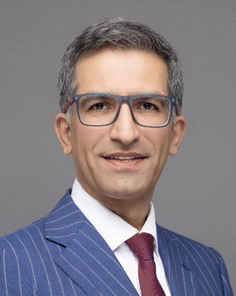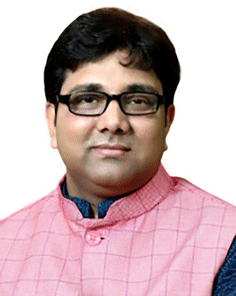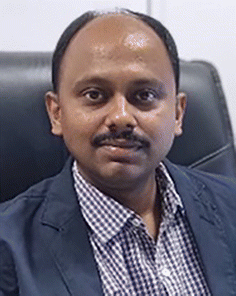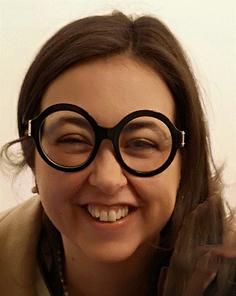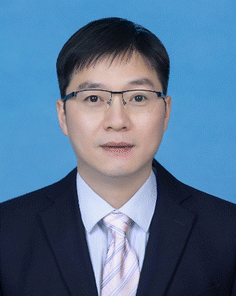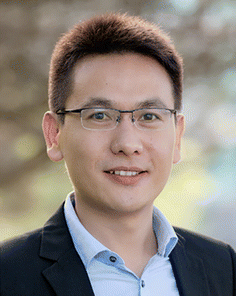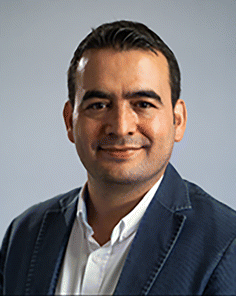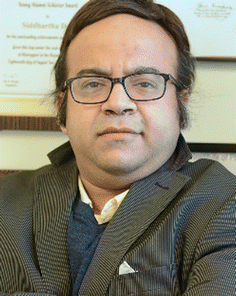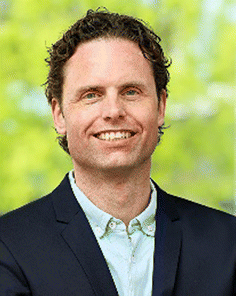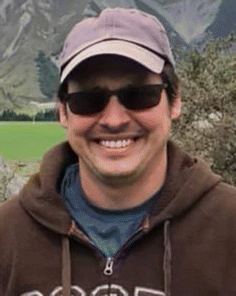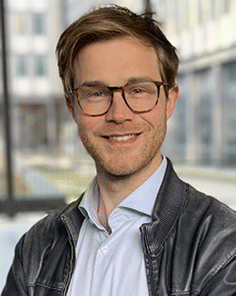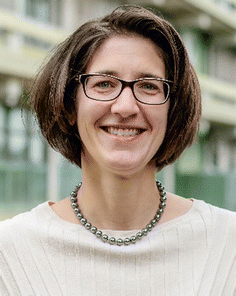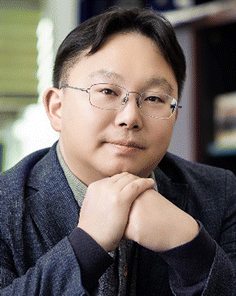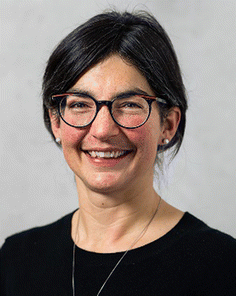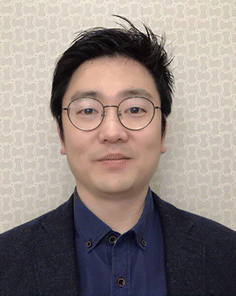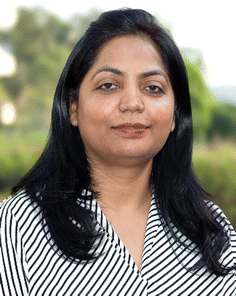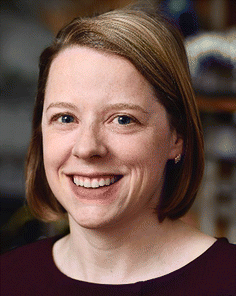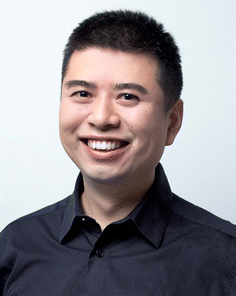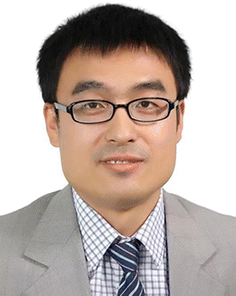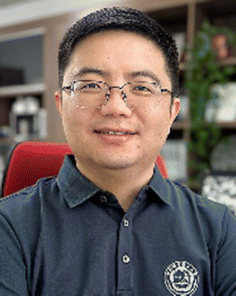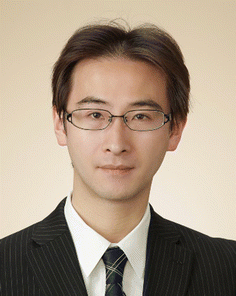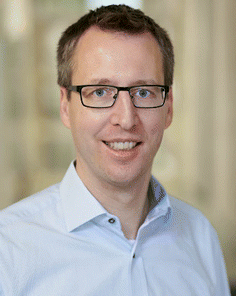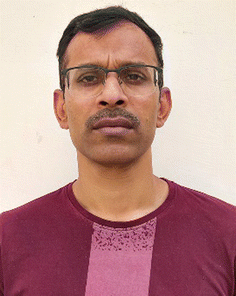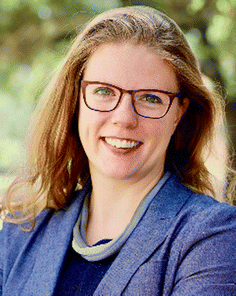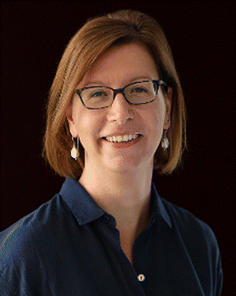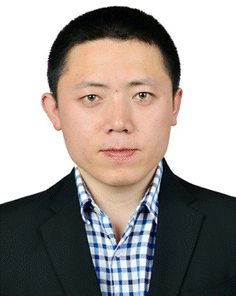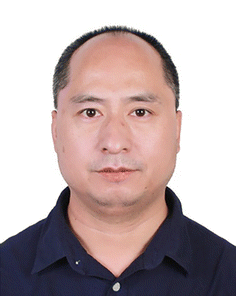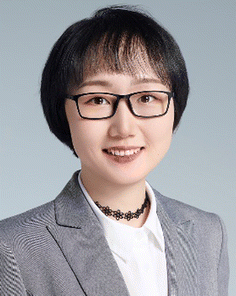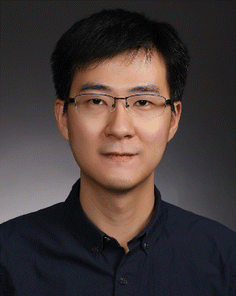DOI:
10.1039/D4CC90213K
(Profile)
Chem. Commun., 2024,
60, 7972-7978
Contributors to the Pioneering Investigators Collection 2024: Part 1
Hamidreza Arandiyan is a leader of the Critical Minerals for Clean Energy Research Group and has an academic tenure in Applied Chemistry and Environmental Science at RMIT University. He completed his PhD from the School of Environment at Tsinghua University in 2014. He received a Vice-Chancellor’s Research Fellowship from the University of New South Wales at the School of Chemical Engineering in 2015. He held a University of Sydney Senior VC Fellowship in the School of Chemistry in 2018. He is a Fellow of the Royal Society of Chemistry (FRSC). His research focuses on resource recovery for environmental remediation and energy applications.
Debasis Banerjee obtained PhD in organic chemistry from the Indian Institute of Technology Kanpur. Thereafter he moved to LIKAT, Germany, for a postdoctoral position with Prof. Matthias Beller (2011–2014) and subsequently held another postdoctoral position (2014–2015) at Stockholm University, Sweden, with Prof. Jan-Erling Bäckvall. Currently, he is an Associate Professor at the Indian Institute of Technology Roorkee (Uttarakhand, India). He is a recipient of the DAE-Young Scientist Research Award, Thieme Chemistry Journals Award and Chemical Research Society of India (CRSI) Bronze Medal of 2023. His research focuses on non-precious-metal catalysis for organic transformations, functionalization of small molecules, and application to industrial valuable products.
Kanishka Biswas is currently a professor in the Jawaharlal Nehru Centre for Advanced Scientific Research (JNCASR), Bangalore. He obtained his MS and PhD (2009) degrees from the Indian Institute of Science (IISc) and did postdoctoral research (2009–2012) at Northwestern University, USA. He started his independent career at JNCASR in 2012 as an assistant professor. His research interests are focused on solid-state chemistry of metal chalcogenides and halides, thermoelectrics, topological quantum materials, synchrotron X-ray techniques and water purification. He is an executive editor of
ACS Applied Energy Materials. He received the Shanti Swarup Bhatnagar Prize in Chemistry in 2021. He is a Fellow of Indian Academy Sciences.
Maria Helena Braga is an Associate Professor in Engineering Physics and the Head of the MatER laboratory, FEUP, University of Porto, Portugal. Since its establishment in 2020, from an endowment by John B. Goodenough, Nobel Prize in Chemistry 2019, her laboratory has been enabling cutting-edge research in the field. She is credited in having created ferroelectric batteries. From 2008–2011 she was a staff member in Los Alamos National Laboratory and from 2016–2019 a Senior Research Fellow in the University of Texas at Austin. In 2020, she received the “Personality” Award from Exame Informatica-Visão-Sapo, SIC TV, in recognition of her outstanding work in energy storage.
Jia-Rong Chen is Professor of Chemistry at Central China Normal University. His current research interests are focused on the development of new methods for synthesizing heterocycles, including photoredox catalysis, nitrogen radical chemistry, and asymmetric radical cross-coupling.
Liang Cheng is a Professor in chemical biology at the Institute of Chemistry, Chinese Academy of Sciences (ICCAS). He completed his PhD at the same Institute in 2009 before moving on to a postdoctoral fellowship at Columbia University, where he worked with Prof. Ronald Breslow on developing artificial enzymes for the selective cleavage of RNA. He started his independent research in 2015, working on developing new bioorthogonal chemistry and chemical probes for the functional modulation of biomacromolecule modifications.
Prof. Ali Coskun received his PhD degree in chemistry from Middle East Technical University, Turkey. He then joined the laboratory of Prof. J. Fraser Stoddart as a research associate at Northwestern University. He started his independent career as an assistant professor at the Korea Advanced Institute of Science and Technology in 2012. In 2017, he moved to the University of Fribourg as a professor. He is currently developing sustainable materials for environmental and energy applications. He has authored more than 135 publications. His research efforts have been recently recognized with the 2023 Swiss Green and Sustainable Chemistry Award and the 2023 ACS Global Outstanding Mentor Award in Polymer Science and Engineering.
Siddhartha Das, an Associate Professor at the University of Maryland (UMD), received his PhD from IIT Kharagpur in 2010 and postdoctoral trainings from the University of Twente (2009–2011) and University of Alberta (2011–2013). Siddhartha’s research interests are in soft matter, polymers, and additive manufacturing. He was elected as a Fellow of the Royal Society of Chemistry, the Institute of Physics, and the Institution of Engineering and Technology, got selected as an emerging investigator by
Physical Chemistry Chemical Physics and
Soft Matter, is a top 2% researcher according to Stanford, and received the IIT Kharagpur Young Alumni Achiever Award and UMD Engineering’s Junior Faculty Outstanding Research Award.
Tom F. A. de Greef completed his PhD at Eindhoven University of Technology under the guidance of Prof. E. W. Meijer and Prof. R. P. Sijbesma in 2009. He is currently full professor at Eindhoven University of Technology and leads the Synthetic Biology group in the Department of Biomedical Engineering. His main research interests are DNA data storage, mammalian and cell-free synthetic biology and the use of active learning methods in synthetic biology. He has been the recipient of both an ERC Starting (2015) and Consolidator (2021) grant and in addition has received VENI, VIDI and VICI personal grants from the The Netherlands Organization for Scientific Research.
Dr Emily Draper is a Senior Lecturer and UKRI Future Leader Fellow within the School of Chemistry at the University of Glasgow, UK. She received her PhD from the University of Liverpool before carrying out a Leverhulme Trust Early Career Fellowship at Glasgow. Her research interests include the controlled assembly of small organic molecules into functional materials for chromic displays, mechanoresponsive thin films and alternative cell growth media. She focuses on the use of small-angle scattering, rheology and electrochemistry to characterise these materials. Her other research interests lie within the retention and promotion underrepresented groups within the supramolecular community.
Jason Dutton completed his PhD in 2010 at The University of Western Ontario. After a 1-year postdoctoral stint at The University of Calgary, he made the big move to Australia in 2011 to start his independent career as a Lecturer at La Trobe University, where he is now Professor of Molecular Curiosities. His research program has a general theme of making molecules uncomfortable by giving them either too many or too few electrons and then standing back to see what they do about it. When not writing grant applications he is probably displaying his famous putting excellence out on the course.
Marco Faustini is a Professor at Sorbonne University (Paris). He was trained as a materials engineer at the University of Trento (Italy) and Aalto University (Finland). After completing his PhD at Université Pierre et Marie Curie (France), he conducted postdoctoral research at POSTECH (South Korea). Since 2012, he has worked at the Laboratoire Chimie de la Matière Condensée de Paris, focusing on nanostructured porous materials for energy-related applications. In his research, he develops colloidal self-assembly, lithography and
in situ spectroscopy for applications in electrocatalysis and photonics.
Viktoria H. Gessner received her undergraduate and Diploma degrees in chemistry from the University of Marburg and Würzburg and her PhD degree from TU Dortmund University with Prof. Carsten Strohmann (2009). She then completed her postdoctoral studies at the University of California in Berkeley with Prof. T. Don Tilley and at the University of Würzburg with Prof. Holger Braunschweig, where she started her independent career in 2012. Since 2016, she has been a Full Professor for Inorganic Chemistry at Ruhr-University Bochum. Her research interests range from the stabilization of reactive main-group compounds to the design of new catalysts.
Sunkyu Han is a Professor in the Department of Chemistry at KAIST. He earned a BSc from KAIST in 2006 under the supervision of Prof. Sukbok Chang and completed his PhD at MIT in 2012 under the guidance of Prof. Mo Movassaghi. Subsequently, he conducted postdoctoral research with Prof. Scott Miller at Yale University. He has been honored with the Hanseong Science Award (2019), the KCS-Wiley Young Chemist Award (2022), and the Young Scientist Award (2022, conferred by the President of the Republic of Korea). His research focuses on natural-product synthesis, natural-product-inspired synthetic method development, and natural-product-inspired drug development.
Anna K. H. Hirsch is full professor for medicinal chemistry at Saarland University and head of department at the Helmholtz Institute for Pharmaceutical Research, Saarland. She focuses on anti-infective drug discovery. After a Master’s at the University of Cambridge with a Master’s project in the Ley group and a PhD with Prof. Diederich at ETH Zurich in 2008, she did a postdoc in the Lehn group in Strasbourg before becoming assistant and then associate professor at the University of Groningen. Anna has authored more than 165 papers and received numerous awards including the RSC Capps Green Zomaya Award in 2024.
Kwang Seob Jeong is an associate professor in the Department of Chemistry at Korea University in Seoul, Korea. He obtained his BS in chemistry at Korea University and PhD in chemistry at Pennsylvania State University in 2013. He worked at the University of Chicago as a JFI post-doctoral fellow before joining the chemistry department at Korea University in 2015. His research focuses on understanding new optical and electrical properties of self-doped quantum dots, chalcogenides, and quantum materials. He was nominated as a 2018 Emerging Investigator by
Chemical Communications of the Royal Society of Chemistry (RSC) in 2018 and the POSCO Science Fellow by the POSCO TJ Park Foundation in 2019. He also received the Korean Chemical Society (KCS)-Wiley Young Chemist Award in 2021.
Shabana Khan completed her PhD at the Indian Institute of Technology, Delhi, in 2008. She pursued her first postdoctoral work at the University of Göttingen in Prof. H. W. Roesky’s group, followed by a second postdoc with Dr Manuel Alcarazo at the Max Planck Institute for Coal Research. She started her independent career as an assistant professor at IISER Pune in 2013 and is currently working as an associate professor. She is a recipient of the “POWER Fellowship” from the SERB, India, and the “Humboldt Fellowship” for experienced researchers (2021). She serves as a topic editor of
Organometallics. Her research interests include the synthesis and application of compounds with low-valent main group elements.
Rebekka S. Klausen, PhD, joined the Johns Hopkins Department of Chemistry as an assistant professor in 2013. In 2019, she was named the Second Decade Society Associate Professor and in 2024, she was promoted to Full Professor. Her research program in synthesis and polymer chemistry has resulted in >50 manuscripts, one book chapter, and awards including the Sloan Research Fellowship (2017), the Mason Award for Women in the Chemical Sciences (2017), the ACS Award in Pure Chemistry (2021), and the ACS Macro Letters/Biomacromolecules/Macromolecules Young Investigator Award (2022).
Qiaowei Li is currently a Professor of Chemistry at Fudan University, China. He received his BS in Applied Chemistry (2004) from the University of Science & Technology of China, MS in Chemistry from the University of Michigan (2006), and PhD in Chemistry from the University of California, Los Angeles (2010). He started his PI position at Fudan in 2010, and was promoted to full professor in 2016. His research interests include the reticular chemistry of multicomponent metal–organic frameworks and their applications for sustainable energy.
Zhenxing Li obtained his PhD from Peking University, China, in 2011. He then joined the Sinopec Research Institute of Petroleum Processing. He is now full professor of the State Key Laboratory of Heavy Oil Processing and College of New Energy and Materials at the China University of Petroleum (Beijing). His recent research interests focus on the design and synthesis of and rare-earth-based nanomaterials for application in thermal catalysis, electrocatalysis, and photocatalysis.
Hai-Wei Liang received his PhD degree under the supervision of Prof. Shu-Hong Yu at the University of Science and Technology of China (USTC) in 2011. After working as postdoctoral fellow in the Max Planck Institute for Polymer Research with Prof. Klaus Müllen and Prof. Xinliang Feng, he joined USTC again as a full professor in 2016. Currently, his research interest focuses on platinum-based cathode catalysts (including mesoporous carbon supports and alloy catalysts) for proton-exchange membrane fuel cells and low-iridium anode catalysts for proton-exchange membrane water electrolysers.
Keiji Mori graduated in 2003 and received his PhD degree in 2008 from the Tokyo Institute of Technology under the supervision of Professor Keisuke Suzuki. After obtaining his PhD degree, he was appointed as an Assistant Professor at Gakushuin University in 2008. In 2015, he was promoted as an Associate Professor at the Tokyo University of Agriculture and Technology. His current research interests include the development of new synthetic transformations based on hydride-shift-mediated C(sp
3)–H bond functionalization and design of π–π interaction-based organocatalysts.
Jochen Niemeyer studied chemistry at the University of Münster (Germany) and obtained his PhD in 2009 in the group of Prof. Gerhard Erker. After postdoctoral work with Prof. Simon Aldridge in Oxford (UK) from 2010–2011, he worked in the R&D department of Evonik Industries. In 2014, Jochen started his independent academic career at the University of Duisburg-Essen (Germany). He was appointed as Associate Professor in 2020 and promoted to Full Professor in 2023. The Niemeyer-group works on the development of novel chemosensors and organocatalysts, with a special focus on using interlocked molecules for the development of novel chiral catalysts.
Prof. Santanu Kumar Pal pursued his doctoral research at the Raman Research Institute, Bangalore. He did his post-doctoral research at the University of Wisconsin-Madison, USA. He is currently a professor at the Department of Chemical Sciences of IISER Mohali, India. With more than 150 publications in reputed international peer-reviewed journals, he is a recipient of several prestigious national medals and awards for his academic achievements. His current research primarily focuses on liquid-crystalline supramolecular systems, and their applications across organic electronic devices, aqueous interfaces, and biological sensing.
Emily Pentzer is an associate professor of chemistry and materials science and engineering at Texas A&M University, USA. Her work addresses the design, synthesis, and application of composite soft matter for energy-related applications, converging polymer chemistry and processing. She earned her PhD at Northwestern University in chemistry then served as a postdoctoral researcher at the University of Massachusetts Amherst in polymer science and engineering, before starting her independent career at Case Western Reserve University. She is a Presidential Impact Fellow at Texas A&M and serves as inaugural Editor-in-Chief of
RSC Applied Polymers.
Elisa Tomat is a Professor of Chemistry and Biochemistry and University Distinguished Scholar at the University of Arizona in Tucson (USA). She completed her undergraduate studies at the University of Trieste (Italy) and then her doctoral work at the University of Texas at Austin. After postdoctoral training at the Massachusetts Institute of Technology, she joined the faculty of the University of Arizona in 2010. Her scientific interests lie at the interface of inorganic chemistry, cell biology, and cancer research.
Changhua Wang is an associate professor at the Key Laboratory of UV-Emitting Materials and Technology of the Chinese Ministry of Education, Northeast Normal University. He obtained his PhD degree in condensed matter physics at the Changchun Institute of Optics, Fine Mechanics and Physics, Chinese Academy of Sciences, in 2009. His research fields include photocatalysis, photothermal catalysis, and solution plasma-driven catalysis. He has published more than 80 papers with an h-index of 40. He has been an editorial board member of
Acta Physico-Chimica Sinica and a young editorial board member of the
Chinese Journal of Structural Chemistry since 2023.
Chong-Chen Wang is a full professor at the Beijing University of Civil Engineering and Architecture. He received his Masters and PhD degrees from the Beijing University of Chemical Technology. His research interests focus on environmental functional materials, especially metal–organic-framework-based functional materials. He is associate editor of
Chinese Chemical Letters and
Environmental Functional Materials. He has published more than 200 peer-reviewed papers with citations >15
![[thin space (1/6-em)]](https://www.rsc.org/images/entities/char_2009.gif)
000. He was recognised as Clarivate’s Highly Cited Researcher and Elsevier’s Most Cited Chinese Researcher.
Nan Wang is an Associate Professor at the School of Chemistry and Chemical Engineering in the Beijing Institute of Technology (BIT), China. Her academic journey began at Queen’s University in Canada, where she earned her MSc (2008) and PhD (2013) under the supervision of Professor Guojun Liu and Professor Suning Wang, respectively. After completing her doctoral studies, Dr Wang worked as a postdoctoral fellow at the University of Toronto at Scarborough in the group of Professor Bernie Kraatz. In 2015, she started her independent career at BIT. Her research interests include organoboron materials, luminescent transition metal complexes, and photochemistry.
Dr Jiang-Fei Xu received his BSc at Beijing Normal University in 2009, and PhD in Organic Chemistry at the Technical Institute of Physics and Chemistry, Chinese Academy of Sciences, in 2014. After two years of postdoctoral training at Tsinghua University, he joined the Department of Chemistry at Tsinghua University as an assistant professor in 2016. He was promoted to an associate professor in 2018. He was awarded the CCS Young Chemists Award (2018), and the CCS Lectureship Award for Creative Young Supramolecular Chemists (2022). His main scientific interests include supramolecular photochemistry, supramolecular polymers, and supramolecular catalysis.
|
| This journal is © The Royal Society of Chemistry 2024 |
Click here to see how this site uses Cookies. View our privacy policy here. ![[thin space (1/6-em)]](https://www.rsc.org/images/entities/char_2009.gif) 000. He was recognised as Clarivate’s Highly Cited Researcher and Elsevier’s Most Cited Chinese Researcher.
000. He was recognised as Clarivate’s Highly Cited Researcher and Elsevier’s Most Cited Chinese Researcher.

